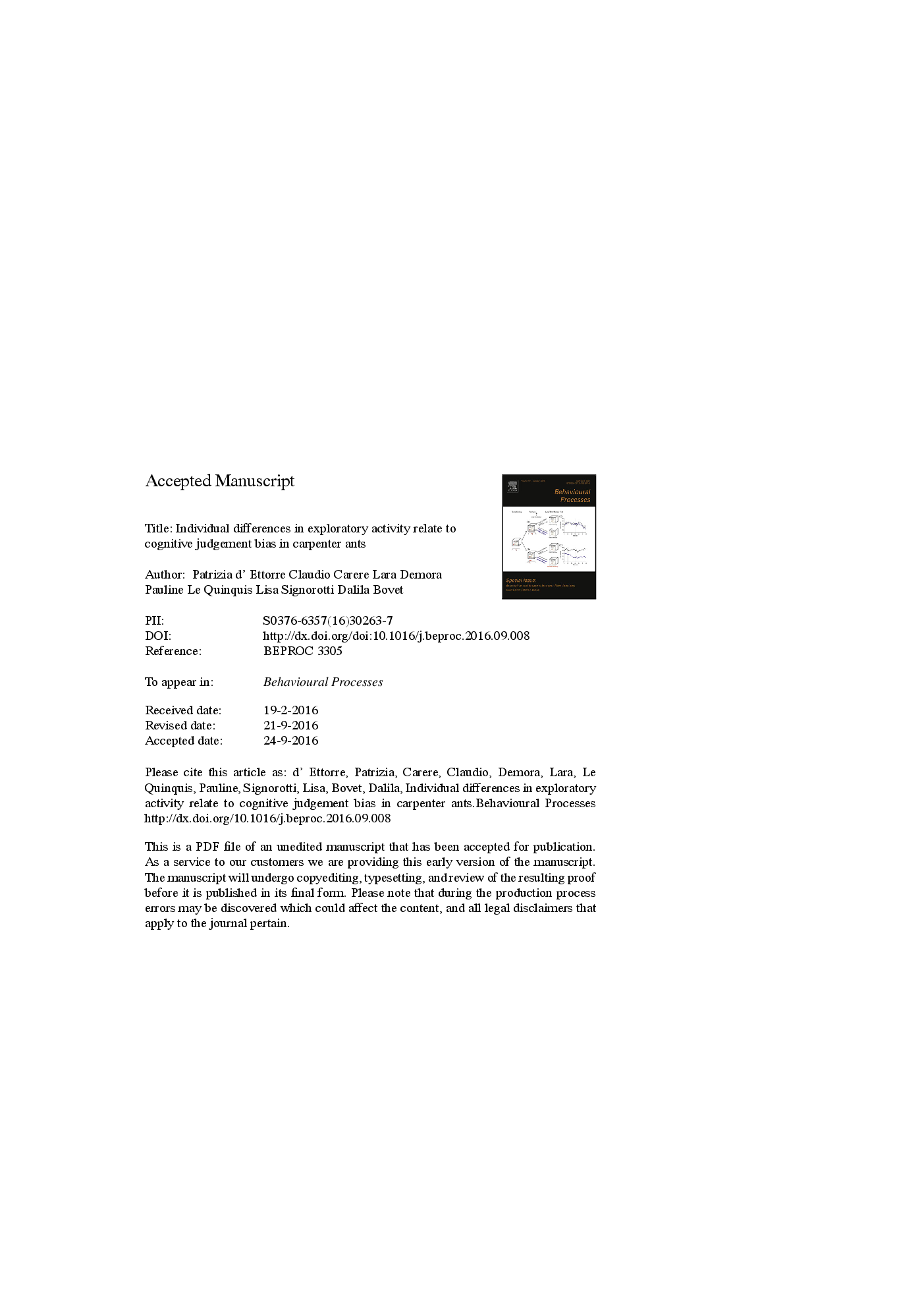ترجمه فارسی عنوان مقاله
تفاوت های فردی در فعالیت های اکتشافی مربوط به انحراف قضاوت شناختی در مورچه های نجار است
عنوان انگلیسی
Individual differences in exploratory activity relate to cognitive judgement bias in carpenter ants
| کد مقاله | سال انتشار | تعداد صفحات مقاله انگلیسی |
|---|---|---|
| 130072 | 2017 | 19 صفحه PDF |
منبع

Publisher : Elsevier - Science Direct (الزویر - ساینس دایرکت)
Journal : Behavioural Processes, Volume 134, January 2017, Pages 63-69
ترجمه کلمات کلیدی
حالت مضر، شناخت، فعالیت کشفی، یادگیری، شخصیت، حشرات اجتماعی،
کلمات کلیدی انگلیسی
Affective state; Cognition; Exploratory activity; Learning; Personality; Social insects;

